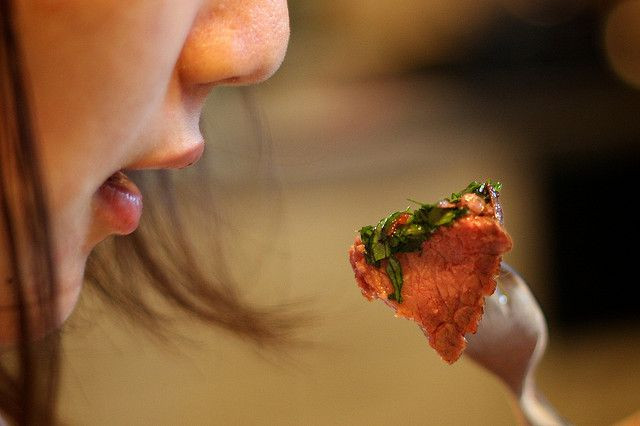Firefly, Las Vegas Restaurant, Found To Be The Source Of 200 Salmonella Cases

A prominent Las Vegas restaurant has been identified as the origin of at least 200 food poisoning cases, according to a report released by the Southern Nevada Health District's Office of Epidemiology.
The Firefly restaurant and its partnered establishment the Dragonfly restaurant have been forced to close their doors following data released by the health agency that confirms a Salmonella outbreak affecting 196 restaurant patrons and four employees.
The Las Vegas establishment previously received a four-and-a-half star out of five grade from Yelp.com, making it one of the highest-rated restaurants on the review site, the Associated Press reported.
Restaurant customers who came down with the illness were reportedly from 20 different states around the country as well as Canada and Britain. Reports began on April 21 and persisted until April 26 when the two restaurants located just off the world-renowned Las Vegas Strip shut their doors with plans of reopening at a different building site.
In a statement, Firefly owner John Simmons said, "Firefly has been a proud member of southern Nevada for 10 years and we are optimistic that the combination of moving to this new location, that has a kitchen as large as the entire original Firefly restaurant, and the recommended retraining (of staff) on operations and procedures, will help us regain the confidence of the community."
Salmonella is the cause of a gastrointestinal infection with symptoms that include nausea, vomiting, and diarrhea. According to the Centers for Disease Control and Prevention, 45 Salmonella outbreaks have been linked to poultry products since the mid-1990s, which is why an egg-based aioli sauce featured on the Firefly's menu was originally to blame.
After further analysis of the aioli sauce's ingredients, officials established that it was not the source of bacteria and no other menu option has been denoted as the cause of the infection.
Health officials did however express concerns for the handling of food that may have led to the proliferation of food-borne illness, including employees not wearing sanitary gloves during food preparation and not washing hands before food preparation, unhealthy heating and cooling processes for food preparation, and unhealthy food storage.



























